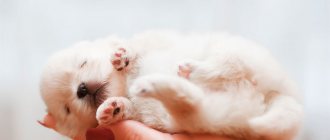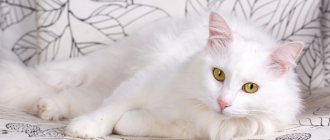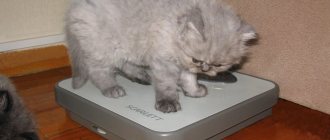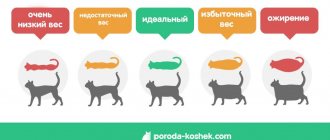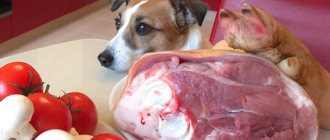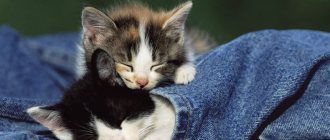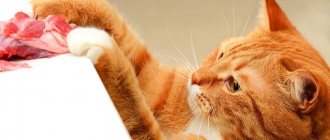How can you not worry about your kitten? He is so small and defenseless, he cannot tell his owner whether there is enough food or not. So the owner is trying: he constantly feeds the baby, because the poor thing is too thin.
What age is the baby? Three months? Great, we have to find out how much a kitten should weigh at 3 months. And after that, decide whether he is really skinny, or whether the owner decided so.
From birth to...
Before we get to our main task, let's talk about how cat babies gain weight.
Birth weight often does not reach 100 grams, unless we are talking about a large breed such as the Maine Coon. Kittens of these breeds weigh about 150 grams at birth.
During the first month of life, the baby gains weight 4-5 times its original weight. A one-month-old kitten already weighs 400-500 grams.
By the age of two months, its weight can be 600-700 g. Maine coons and other large breeds can weigh 900 g.
The normal weight of a kitten at 3 months is from 1200 to 1500 grams. But there are some factors to consider here. Which? We'll find out in the next subsection.
Common Digestive Problems
Feeding at 4 months is a challenging task for kitten breeders. If food is not given in porridge form, the animal may become constipated. And when prohibited foods are included in the diet, diarrhea occurs. In such a situation, the question arises: what is the treatment for diarrhea in a 4-month-old kitten? In what cases can you cope on your own, and when is it better to go to a veterinary clinic?
© shutterstock
You should contact your veterinarian immediately if:
- Vomiting and diarrhea are present at the same time;
- There is diarrhea with blood;
- The disorder recurs more than 4 times a day.
Self-treatment involves a daily starvation diet. You can give the kitten a rehydron solution or salted water. A decoction of rice or a mixture of oak bark helps stop diarrhea when it is caused by poor diet. A decoction of flax seeds or oatmeal also perfectly helps eliminate the symptoms of the disease.
A recovered animal can be given deworming tablets, as they are often the cause of loose stools.
Children's smecta and activated charcoal should be given in case of illness. Bifidobacteria or lactobacilli can be given with a small amount of food on the second day of treatment.
When treating at home, you do not need to prescribe antibiotics to your cat yourself. At 4 months they will destroy all the microflora of his intestines. When diarrhea is severe, it is worth finding out the cause of the disease and eliminating it.
Factors affecting weight
It all starts from the moment the cat is pregnant. It is no secret that the further development of a kitten, including its weight, is influenced by intrauterine formation. Did the fetus receive the required amount of vitamins and nutrients?
- Nutrition of the expectant mother is a key factor in the formation of the fetus and its subsequent development.
- The nutritional value of mother's milk plays an important role.
- Does the baby have enough milk? If not, then he may be slightly behind in physical development from more “well-fed” kittens.
- Number of brothers and sisters. The larger the litter, the harder it is for the cat to feed it.
- Nutrition after weaning. It is clear that a stray kitten, which knows the feeling of hunger from an early age, will weigh less than its domestic counterpart.
- Seals are larger than female cats, so they will weigh more.
The weight of a 3-month-old kitten depends on such seemingly not very significant factors.
Tips for keeping your kitten healthy
Veterinarians recommend the following ways to maintain the health of a kitten:
- Study the movements and reactions of the kitten to immediately understand if he suddenly gets sick and immediately contact a veterinarian;
- Provide your kitten with proper nutrition by choosing a balanced diet appropriate for the animal’s age;
- Kittens need to sleep a lot, so provide your pet with a quiet and comfortable place to rest;
- Never wake a sleeping kitten;
- Take time to play with the kitten, as it needs communication and physical activity;
- Always stick to your vaccination schedule.
The first months of a kitten’s life are a time of intensive growth and development. By taking care of your pet's health at this stage, you can lay the foundation for a healthy kitten life in the future.
Breed and weight
Two friends decided to get cats. One bought a Maine Coon, and the second decided on a Siamese kitten. The “kids” are the same age and are fed very well. But why does the Maine Coon look like a lynx? Plump, heavy, pleasant to touch. And a representative of the Siamese breed resembles a skeleton: skinny, disproportionately long, and you can count the ribs.
Because the breeds are completely different. And this means that the weight of a kitten at 3 months of one breed will be significantly different from another.
So that the owners are not afraid of the “wrong” weight of their pet, they need to know this:
- At the age of three months, the Maine Coon weighs 1700-2300 grams.
- A Scottish kitten at the same age will weigh 1000-1500 grams.
- A British baby weighs the same as a Scottish baby.
- A Siamese kitten barely reaches a weight of 1000 grams.
- Sphynxes can weigh from 800 to 1300 grams.
- Ordinary noble representatives of cats - from 700 to 1000 grams.
Pathology
How much should a kitten weigh at 3 months of age? From 700 to 2300 grams. It depends on the breed. The average weight ranges from 1200 to 1500 grams.
What if the pet exceeds its weight category? A slight excess cannot be called critical. 100 grams is nonsense. In the case when a pet looks more like a small ball than a cute kitten, we are talking about a pathological weight disorder. And what should the owner do?
First of all, have your pet examined by a veterinarian. Cats are prone to diseases, the symptom of which is weight gain. If the veterinarian rules out their development, then you will have to reconsider the pet’s diet. He also diagnoses obesity in the baby.
Same problem, only from the other side. The kitten does not weigh enough. But at the same time he is active, mobile, curious and has a good appetite. It wouldn't hurt to visit a veterinarian. Has the cat and dog doctor ruled out diseases? Great, people can be too thin too. They eat pretty well though. You should not try to fatten the kitten, let him eat as much as he wants.
Dangerous symptoms
Poor nutrition, lack of activity and weight control lead to overeating or undereating in cats. An outbred individual is able to independently control the amount of food eaten. Pedigree cats and animals in adulthood are characterized by a weak instinct towards food. Excessive eating leads to obesity.
The following symptoms help to recognize the disease: fat deposits, fatigue, apathy, lack of interest in games and shortness of breath. A malnourished cat is characterized by poor weight gain, bone visualization, and frequent illness. The presence of one or more symptoms requires immediate consultation with a veterinarian.
Feeding and maintenance
We found out how much a kitten should weigh at 3 months. Now let's talk about how to feed the little furry little prankster. And how to care for it.
Let's start with nutrition. The owner needs to remember that a lot depends on a balanced diet. Please do not feed your baby with economy class kitten food. Yes, they are available and cheap. But the quality is lacking on both legs. Feeding a kitten this kind of food is the same as feeding a human child instant noodles. Is there much use in it? And how long will you be healthy enough to digest this crap?
What if you don’t have money for good food? He's expensive. Feed natural food, this is not a problem. Chicken and turkey are not the most expensive meats. Vegetables and cereals are also not incredibly expensive products.
Milk is getting more expensive, it’s true. But there is no need to give milk to a three-month-old animal every day. It won't do any good. Three times a week you can pamper yourself with kefir and cottage cheese. Once a week, give a boiled egg, or rather a half or a quarter of it.
Did the owner finally decide to feed? Let him choose super-premium class or holistic. They are not cheap, but the quality is simply excellent.
We sorted out the diet. Let's move on to the content. What does the baby need?
- A lounger or a rest house. The kitten will sleep in it and hide when it needs to be alone.
- Scratching post. You can buy the simplest one, mounted on the wall. Or you can take a whole cat town with a scratching post, a house and toys. It all depends on the financial situation of the owners.
- Bowl for water and food.
- Toys.
- Nail clippers or nail scissors. Useful from the age of six months for trimming nails.
- Cotton swabs. Needed to remove discharge from the eyes. The kitten is examined daily. The owner checks the cleanliness of the ears and eyes. Dirt and discharge are removed using a dampened swab. The ears are cleaned with cotton swabs.
- We now know how much a kitten should weigh at 3 months. By the way, scales will be very useful for him.
- Tray and filler. The kitten has done its business, the spoiled litter is removed immediately, and a new one is added in its place.
Long-haired breeds require regular brushing. Kittens and cats should not be washed frequently. Twice a year is enough.
What not to feed a kitten
Some owners who do not know how to properly feed kittens give them foods that are undesirable for consumption.
- Salted, fried, smoked, peppered, spicy, fatty. These foods cause inflammation of the digestive tract.
- Milk. At the age of 3-4 months, it is better to give it up, since the kitten’s digestive tract is no longer able to digest lactose.
- Citrus. They are not digestible in cats. Moreover, they cause irritation of the mucous membrane of the stomach and esophagus, which leads to an attack of vomiting followed by dehydration.
- Bones. Cats chew bones into many fragments, which pass through the gastrointestinal tract and injure the mucous membrane. As a result, bleeding may occur.
- Chocolate and other sweets. They have a toxic effect on the kitten’s body.
- Vegetables of the nightshade family, as well as onions and garlic. The body does not digest these foods.
- Avocado, grapes and raisins. They contain a poisonous toxin.
